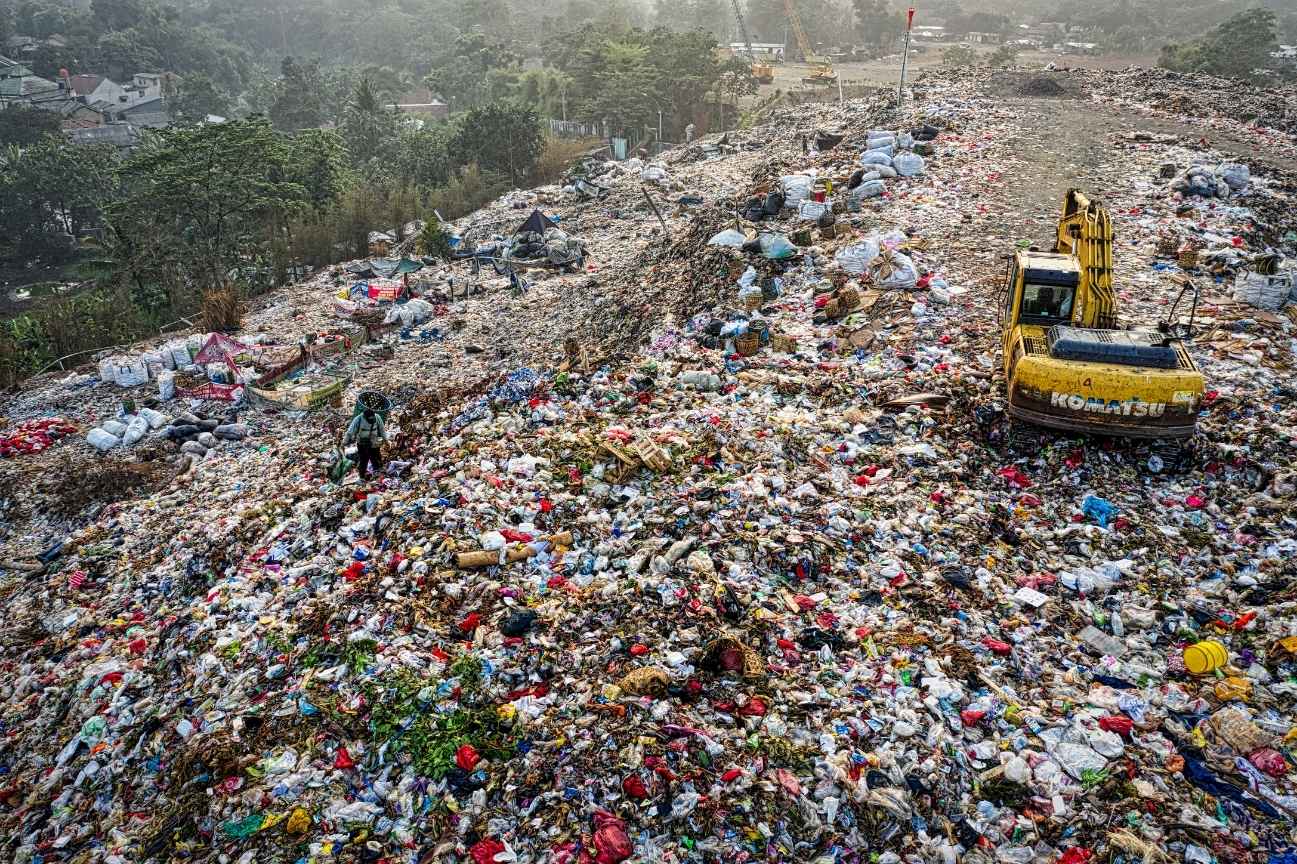Waste management is a critical component of environmental protection, but not all practices within the industry are created equal. Ignoring the regulations surrounding waste manifesting can have serious consequences. This guide will delve into the controversial waste manifesting practices and explore the risks associated with neglecting compliance.
Introduction
Waste manifesting is the process of tracking hazardous waste from its point of generation to disposal. This practice plays a crucial role in waste management. It ensures proper handling and disposal of hazardous materials. Waste manifesting helps protect public health and the environment, providing a documented trail that holds parties accountable.
Despite its significance, some waste manifesting practices can stir controversy. For instance, shortcuts in paperwork or improper handling can lead to severe consequences. These practices not only undermine the purpose of waste manifesting but can also pose safety hazards. Many industries overlook the importance of thorough documentation and compliance. However, understanding the regulations around waste manifesting is essential for maintaining safety and legal compliance.
In today’s rapidly changing landscape of waste management, staying informed is key. Regulations surrounding waste manifesting vary widely and can complicate compliance. Organizations must understand these rules to avoid potential risks. Ignoring these regulations can lead to health risks, legal penalties, and even reputational damage.
Understanding waste manifesting and its importance to waste management is the first step. Businesses must recognize the significance of rigorous compliance with regulations. Embracing best practices not only protects the environment but also ensures the safety of workers and communities. In short, being proactive about waste manifesting regulations is crucial for any responsible business.
Section 1: Understanding Waste Manifesting Regulations
1.1 What Are Waste Manifesting Regulations?
Waste manifesting regulations serve an essential purpose in waste management. They ensure that hazardous materials are tracked from their point of origin to their final disposal. These regulations help prevent environmental contamination and protect public health.
The regulations are outlined by various governing bodies, including the Environmental Protection Agency (EPA) in the United States. Additionally, state and local agencies set their own rules, which can vary significantly. This patchwork of regulations means that businesses must stay informed about the requirements relevant to their locations and the types of waste they handle.
Establishing a comprehensive understanding of these regulations is critical. For instance, businesses must properly document the shipment of hazardous waste. This documentation, or “manifest,” provides essential details such as the type of waste, quantity, and destination. Failing to comply with these requirements can result in severe consequences.
1.2 The Role of Contaminated Waste Hauling in Compliance
Contaminated waste refers to materials that could harm human health or the environment. Examples include industrial chemicals, medical waste, and heavy metals. Due to their hazardous nature, contaminated waste requires specialized handling and transportation.
Proper hauling of contaminated waste directly links to waste manifesting regulations. When transporting such materials, businesses must adhere to strict guidelines to ensure safety and compliance. This includes using licensed haulers and issuing appropriate manifests for each shipment. The manifest serves not only as legal documentation but also as a safeguard against potential exposure.
Compliance can be tricky. Businesses must frequently update their knowledge regarding regulations, especially when dealing with diverse waste types. Partnering with certified haulers can streamline this process. Engaging professionals with expertise in compliance can significantly reduce the risk of violating waste manifesting laws.
Understanding and following waste manifesting regulations is not just about avoiding fines. It’s about safeguarding communities and ecosystems. Therefore, businesses should prioritize compliance while adapting to any changes in regulations to protect themselves and their environment.
Section 2: The Consequences of Ignoring Regulations
Ignoring waste manifesting regulations isn’t just risky; it can lead to dire consequences. Let’s break down the potential health risks, legal troubles, and reputation damage that businesses may face when they neglect compliance.
Health Risks and Environmental Impact
When companies bypass waste manifesting regulations, they expose workers and communities to significant health risks. Hazardous materials, if mishandled, can release toxins into the air and water supply. For instance, improper disposal of industrial waste can contaminate groundwater, leading to long-term health issues for nearby residents.
Moreover, environmental repercussions are profound. Polluted soil and water systems disrupt ecosystems, harming wildlife and plant life. Neglecting compliance affects not only immediate surroundings but also creates a ripple effect on the environment. Companies must realize that overlooking regulations poses a threat to public safety and ecological stability.
Legal and Financial Ramifications
The legal dangers of ignoring waste manifesting regulations are serious. Violating these laws can result in hefty fines and penalties. Regulatory agencies actively monitor compliance, and inspections can lead to uncovering non-compliance issues.
For example, the Environmental Protection Agency (EPA) rigorously enforces regulations, meaning businesses could face legal actions if found in violation. Fines can reach thousands or even millions of dollars. This not only affects financial health but can also lead to lengthy court battles, further draining resources.
Damage to Reputation
The corporate reputation is a fragile thing. Once it’s tarnished, rebuilding trust can take years. Companies that ignore waste manifesting regulations often face public backlash. For instance, organizations implicated in environmental scandals tend to see a significant drop in consumer confidence.
High-profile cases often make headlines, showcasing the negative effects of negligence. Firms like Wells Fargo or Volkswagen faced immense pressure due to regulatory compliance failures. Their questionable practices not only affected their operations but also led to lost customers and diminished market value.
In conclusion, the risks of ignoring waste manifesting regulations extend far beyond mere penalties. They encompass health threats, legal troubles, and long-lasting damage to a company’s reputation. Businesses must prioritize compliance to safeguard their future and protect the environment.
Section 3: The Industry Standards Debate
3.1 Current Standards and Guidelines
The landscape of waste management is shaped by various standards and regulations. These guidelines help ensure safe and responsible practices. At the federal level, the Environmental Protection Agency (EPA) plays a significant role. It provides the foundational regulations for waste manifesting. However, state and local authorities often have their own additional requirements. This creates a complex web of regulations that businesses must navigate. Understanding these layers is essential for compliance.
Different states may impose stricter rules based on local environmental conditions. For instance, hazardous waste manifesting has specific requirements that vary by region. Keeping up with these evolving standards is not easy, but it is crucial. Companies must stay informed about any changes to avoid costly penalties.
3.2 Challenges in Regulation Compliance
Despite the importance of compliance, many businesses face significant hurdles. One common challenge is the lack of awareness about current standards. Without proper training, employees may inadvertently overlook critical procedures. This can lead to serious compliance violations.
Another issue is the sometimes vague nature of regulations. Businesses may struggle to interpret what specific requirements mean in practice. Furthermore, smaller companies might not have the resources to implement robust compliance strategies. As these challenges persist, the debate around industry standards continues to grow.
Advocates for stricter regulations argue that tighter controls could enhance public safety and environmental protection. However, some industry voices warn that excessive regulation might stifle innovation. They claim it can lead to increased costs, particularly for smaller operations. This ongoing discussion about balancing safety and efficiency is vital for shaping the future of waste manifesting.
In conclusion, understanding current standards and the challenges of compliance is key to effective waste management. Businesses must prioritize compliance education and stay updated on regulations to mitigate risks.
Section 4: Best Practices for Regulated Waste Compliance
Navigating the maze of waste manifesting regulations can seem overwhelming. However, implementing best practices can streamline compliance and mitigate risks. Here, we’ll explore actionable steps businesses can take to prioritize regulations effectively.
4.1 Developing a Compliance Strategy
Creating a robust waste management compliance strategy is essential. Follow these steps to ensure thorough compliance:
Identify Applicable Regulations
- Assess regulations at the federal, state, and local levels.
- Ensure comprehensive coverage to prevent any lapses.
Integrate Regulations into Operations
- Include compliance measures in your operational framework.
- Regularly update these measures as regulations change.
Employee Training
Training is vital for your team’s success in compliance. Make sure to:
- Educate employees on waste manifesting practices.
- Provide regular training sessions to reinforce knowledge.
This awareness not only protects your employees but also safeguards the environment. With consistent training, your team will stay informed about updates or changes to regulations.
Designate a Compliance Officer or Team
Establishing a dedicated compliance group is a wise decision. This team can:
- Monitor adherence to regulations,
- Update practices as necessary,
- Serve as a checkpoint for potential penalties.
By creating clear channels for feedback, your organization can rapidly address any compliance issues.
4.2 Technological Solutions
Technology significantly enhances compliance efforts. Here’s how to leverage it effectively:
Implement Software Solutions
- Use software designed for waste management to streamline manifest tracking and record-keeping.
- Improve accuracy and avoid costly mistakes with electronic tools.
Automate Documentation
Platforms like electronic waste tracking systems can:
- Automate documentation processes,
- Provide real-time updates on waste movements.
This automation reduces the risk of errors and enhances efficiency. Additionally, these systems can offer valuable data analysis, allowing for optimized waste management strategies.
Encourage Immediate Reporting
Consider using mobile applications that empower employees to:
- Report waste handling incidents immediately.
- Foster a culture of accountability within your organization.
Stay Updated with Innovations
Lastly, don’t overlook the importance of staying current with industry innovations. Regularly review:
- The latest technological developments that enhance waste compliance.
- Emerging trends that could impact regulatory practices.
By developing a solid compliance strategy and leveraging technology, businesses can navigate waste manifesting regulations more easily. In turn, this approach ensures a safer environment for employees and communities alike.
Conclusion
In today’s rapidly evolving environmental landscape, adhering to waste manifesting regulations is more crucial than ever. Ignoring these regulations can lead to severe consequences, not only for the environment but also for businesses themselves. From hefty fines to legal action, the risks are considerable.
Keep in mind that non-compliance isn’t just a financial issue. It severely impacts public health and degrades the environment. Communities suffer when hazardous waste isn’t managed correctly, affecting air and water quality. Workers exposed to unregulated waste may face serious health repercussions, including long-term illnesses.
Moreover, the damage to a company’s reputation can be irreparable. With more consumers prioritizing sustainability, businesses that neglect regulations may face backlash. A tarnished reputation often leads to loss of customers and diminished trust from stakeholders.
To mitigate these risks, businesses should prioritize compliance with waste manifesting regulations. Understanding and implementing these regulations isn’t just a regulatory checkbox—it’s an investment in responsible business practices. Make compliance a cornerstone of your operations to ensure both the safety of the environment and the future viability of your company.
Ignoring waste manifesting regulations is a gamble that no business should take. Instead, take proactive measures now. This will not only protect your organization but also contribute to a healthier and more sustainable planet for everyone.







